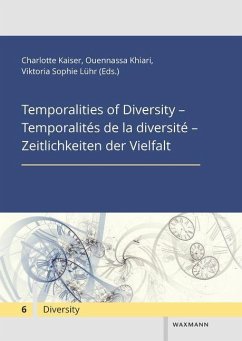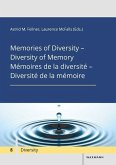This collective volume explores the connections between time and difference in a transcultural perspective. The dehistoricization and naturalization of diversity in contemporary discourse conceal the roles of Subjectivity, memory, and time in the social construction of difference. The experience and perception of time is at once psychological, linguistic, political, philosophical, and cultural. It is also technologically mediated. Whether linear, circular, interrupted, cyclical, synchronic, diachronic, or (non-)simultaneous, time stands in problematic relation to space, and not just metaphorically. Overlapping memories, hidden histories, processes of in- and exclusion, future aspirations and projections, arise from and give rise to diversity. Both memories and metanarratives are cultural practices that organize experience and transform it into general knowledge. Following Lyotard and poststructuralist theorists we can question these hegemonies to unveil "petits récits" (1979) andto reflect on the diversity of human experience, such as indigenous, immigrant, and other marginalized perspectives in Canada and Québec as well as in Europe.
Bitte wählen Sie Ihr Anliegen aus.
Rechnungen
Retourenschein anfordern
Bestellstatus
Storno








